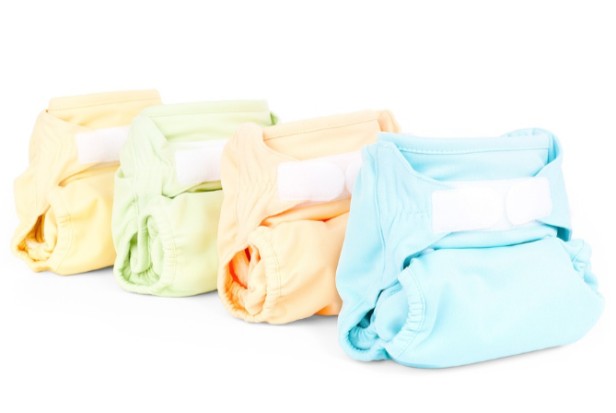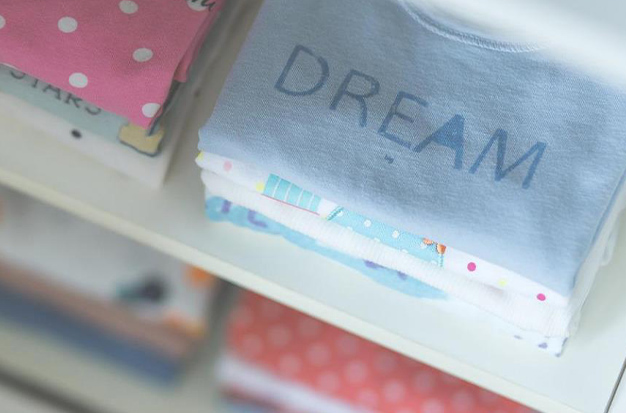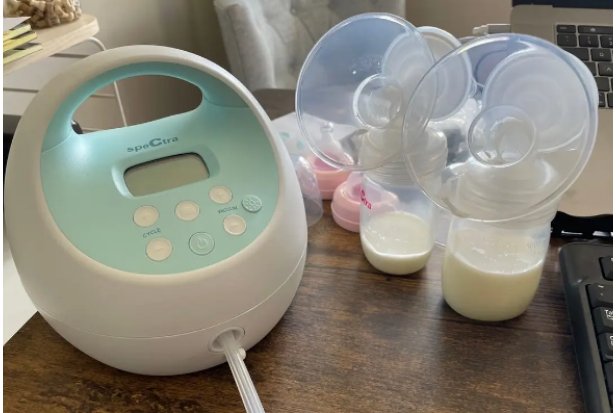After a baby’s first year, it’s best to stop using a sound machine. Your kid ought to have gotten into a good sleep routine by this point. You should be able to cut back on how frequently and for how long you use the sound machine. The need for a sound machine might disappear if your child starts sleeping through the night.
One of those recommendations that caregivers occasionally have some trepidation about or are unsure of how to use is white noise. You should be aware of the following information so you can make an informed decision for yourself and your child.
Is White Noise Okay for Babies?
White noise is safe for babies from a health standpoint as long as it remains in the background because it is intended to be there. The American Academy of Pediatrics (AAP) advises using a white noise machine set no louder than 50 decibels (roughly the sound level of a quiet dishwasher), so you’ll want to place it far from the baby’s crib, use a low volume setting, and stop playing it once the baby falls asleep, if possible.[1]
If you’re still concerned about the risks, trust your instincts and use common sense. If your child thinks the white noise machine is too loud or bothersome, turn it off and keep the machine and its cords out of his or her reach.
When to Stop Using Sound Machine for Babies
Although there is no definitive answer to the question of when parents should stop playing white noise to their infants, a reasonable age would be between 12 and 18 months. It’s the perfect time to wean babies off the device because they are at this age when they become much more aware of their surroundings.
Every baby develops at a different rate, so it’s important to remember that you shouldn’t just turn off the white noise machine when they turn one. When your baby begins to sleep through the night and no longer requires a nighttime feeding, you should try to turn off the white noise machine at the same time.
Every baby will experience this differently, as was already mentioned, so just be mindful of their growth and time it with all the other changes in their life. If you’re still unsure based on this information, speak to a medical expert to find out what stage your baby is in right now. You can determine the ideal time to turn off the white noise machine by observing your child every day.
Keeping your baby sleeping peacefully throughout the night is essential. It’s entirely up to you whether you keep using the white noise machine if this doesn’t occur, even if you’re cautious about turning it off. Just be aware that removing the device from your baby in the future will become more difficult the more reliant your baby becomes on it. Particularly when they begin speaking and are able to express their wants.
When deciding when to stop playing white noise for your baby, the most crucial thing to keep in mind is to not stop it all at once. If you’re accustomed to sleeping with a white noise machine on in the background, normal nighttime noises will seem extremely loud and distracting, so be sure to approach this in the best possible way. Here, it is further explained.
Are White Noise Machines Good for Your Baby?
New parents are always more concerned with what might be harmful when deciding what’s best for their infant. This is completely understandable, especially if it’s their first child. Everything is covered by this school of thought, including clothing, cribs, and strollers. Obviously, there are also electronic items like white noise generators.
Over the years, white noise generators have become a common infant sleep aid. White noise machines have become increasingly popular ever since a 1990 study that proved they hasten baby sleep. Despite the lack of scientific evidence to support it, many parents have used them for many years, so it is essentially a given that they aid in baby’s quicker fall asleep.
However, the program does have a 60 day money back guarantee, so you have the option of returning it if you feel it’s not worth your while.
Even if your infant sleeps soundly, using a white noise machine can have enormous advantages—more for you than for your child. It’s especially helpful when babies are weaning because this can cause them to wake up very suddenly; if you don’t want to stay up all night, it’s best to avoid this.
They also mask background noises from the home, which can disturb a baby’s sleep. This is another clear advantage. This can range from outside noises like traffic and barking dogs to inside noises like conversations and TVs.
The ability to put babies to sleep is very easy when they are very young, but as they get older, it gets harder. Therefore, if your neighbor’s dog starts barking in the middle of the night, the last thing you want is for your baby to be awakened.
Using a white noise machine for your baby, though, could have some drawbacks. The biggest is the fact that your baby can become dependent on having white noise in the background while they sleep, and while this isn’t damaging to their health, it can make things much harder when you’re sleeping away from home, or if the white noise machine breaks.
The fact that many white noise machines can actually be turned up very loud—often too loud for use near a baby—is another important factor to take into account. In 2014, the American Academy of Pediatrics tested 14 white noise machines, all of which were intended for infants, and discovered that every single one of them exceeded the advised noise limits (50 decibels). However, this doesn’t necessarily have to be an issue; just pay attention to the volume control and make sure the device is placed away from the infant’s crib.
EMF radiation is another significant disadvantage to take into account in the vicinity of your infant. We can’t escape all EMF radiation, and its effects on developing children are still largely unknown, so it’s best to stay away from it just in case. Because of this, place the white noise machine about 7 feet (2 meters) away from your baby’s crib to help reduce the amount of noise there is.

How to Wean Your Baby Off a White Noise Machine
As was already mentioned, ceasing white noise abruptly for your baby is the worst thing you can do. After all, they will be accustomed to sleeping with one, particularly if you have been using it since they were very young. It will be very difficult to fall asleep for many nights if you simply remove it one night because all the background noises it was masking will be very obvious.
The key is to gradually wean them off of it, just as you would when switching them from milk to solid foods. Consider the same logic in action: that you’d prefer not to deal with the effects of a sudden change. In reality, all this means is that you’ll need to be patient when removing white noise from your baby’s routine and make arrangements in advance to do so by a specific time.
The white noise machine only needs to be lowered gradually. Start with the machine at its normal volume for at least a week (possibly longer if your baby is a light sleeper), and then quietly sneak in later in the night to turn it down. As you lower the temperature each night, make sure to do so very gradually. In the beginning of this process, your baby will be most sensitive to background noise, so take care not to turn it down too much too soon.
Start off at a lower volume when your baby goes to sleep and then gradually lower it throughout the night as they get used to sleeping with a quieter white noise machine. As long as the noise is still audible, continue doing this. You ought to be able to stop using it entirely by that point.
Even if your baby is asleep when this occurs, doing it this way will help them become accustomed to background noises from the natural world. In fact, because it will make things simpler in the long run, it’s preferable that they get used to background noises while sleeping. By the time you turn off the white noise, you’re hoping they’ll be sleeping soundly and through the night.
What Kind of White Noise is the Best for Babies?
Think of the sound a radio makes when it isn’t tuned into a station when imagining standard white noise, which is the aural equivalent of TV static. The fact that this sound occupies all of the usual frequencies makes it the perfect barrier, despite the fact that it may not be particularly appealing, makes it excellent at masking unwanted background noise.
Nevertheless, a lot of the more recent white noise machines also include a variety of calming sound effects. These include sounds like rain, forest noises, birdcalls, and whale song. Normal white noise is probably the most effective sleep aid for babies, but there’s no harm in experimenting to see if any other soundtracks on the device produce different results.
All babies will react differently, just like with anything else. It’s possible that your child prefers something different to white noise and doesn’t like it. Or you might discover the exact opposite, that your child despises all noise. There is absolutely no harm in experimenting with a white noise machine to see if it improves your baby’s sleep schedule.
What If I Choose Not to Stop Using White Noise at the Recommended Time?
The recommended period of 12-18 months was chosen mainly because it’s when most babies have reached the end of the “baby” stage, and are moving towards toddler. It makes sense to include this change in with all the others since it occurs at a time when a lot of other things are changing in the baby’s life.
The only real issue you’ll face is dependence on the sound if you decide to keep using a white noise machine for whatever reason. This will become a bigger issue the longer your baby uses the device, and once it has become ingrained in their routine, it will be much more difficult to get them to stop.
Consider switching to something else that performs the same function if your baby has trouble falling asleep or stays asleep, which some babies do. A good alternative would be audiobooks, as this is a much more useful thing to be listening to and will hopefully set up good habits for later in life. Despite this, you would still experience dependency issues—they would just have a different tone.
Some claim that your baby’s dependence on white noise is a dangerous habit, but this is sort of making a mountain out of a molehill. They won’t necessarily suffer any harm if they continue to use white noise to block out background noise because, aside from volume levels, there aren’t necessarily any risks associated with it.
Speak to a healthcare professional if you have any questions about using white noise with your child. They can provide you with much more specialized guidance.
Final Thoughts
When it comes to answering the question “when to stop using white noise for your baby,” there isn’t one clean answer that will work for everyone. It’s completely understandable that you wouldn’t want to stop using it if you started using it to help you sleep. Stop it around the 12–18-month mark, though, if you’re aware that you don’t want your child to become dependent.
But even so, you are the best person to judge what is best for your own child. The only overt risks of white noise for infants are dependency, EMF radiation, and volume, which are all easily manageable. The only one that warrants real concern is the last one, but it is still simple to avoid. The most crucial thing is to figure out what your baby responds to best, and keep in mind that if their sleep pattern changes, you can always start using white noise again.
FAQs
Safe Decibel Levels for Infants White Noise
White noise machines should, according to the AAP, be placed at least 7 feet (200 centimeters) away from a baby’s sleeping area and should not be louder than 50 decibels, which is the volume of a typical vacuum cleaner or hair dryer.
Should You Keep White Noise on All Night for Baby
Should you put your white noise machine right next to your child’s head all night long and blast it at maximum volume? Of course not, but if you keep white noise at a safe volume and a safe distance from your baby’s ears, there is zero cause for concern.
Can You Leave White Noise on All Night
As long as white noise works to settle and improve sleep for your baby, you can keep using it. Many families discover that settling their older infants or toddlers and allowing them to sleep through the night helps. Since it is extremely safe, there is no right or wrong time to stop using it. You can use it as long as you like.



